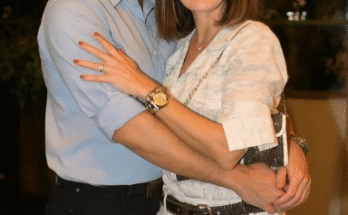Title: At the Hands of Love: The Silent Epidemic of Intimate Partner Violence
She was young. She was vibrant. She had dreams, routines, favorite songs, and a laugh that lingered in the air. But her life was cut short—at the hands of someone who once claimed to love her.
This is not just one woman’s story. It’s a pattern. A quiet epidemic. And it’s time we stopped turning away.
💔 The Illusion of Safety
For many women, home is not a sanctuary. It’s a battleground. The person they trust most—their partner—becomes the source of fear, control, and ultimately, violence. The betrayal is not just physical; it’s emotional, psychological, spiritual. It’s the erosion of self-worth, the silencing of voice, the rewriting of identity.
Statistics tell us that one in three women globally will experience physical or sexual violence in her lifetime, most often at the hands of an intimate partner. But behind each number is a name, a story, a life interrupted.
🧠 The Psychology of Control
Abuse rarely begins with bruises. It starts with charm, with flattery, with the intoxicating rush of new love. Then come the subtle shifts: isolation from friends, monitoring of texts, criticism disguised as concern. The abuser doesn’t just want obedience—they want ownership.
And the victim? She often doesn’t realize what’s happening until she’s deep inside the cycle. Shame, fear, and hope intertwine. “Maybe he’ll change.” “Maybe it’s my fault.” “Maybe if I just love him better…”
But love should never require self-erasure.
📺 Media, Myth, and Misrepresentation
When stories of femicide make headlines, they’re often framed as tragedies of passion. “He was jealous.” “She was leaving him.” “It was a crime of love.” These narratives romanticize violence and obscure the truth: this is not about love. It’s about power.
Pop culture plays a role too. Films and songs sometimes glorify possessiveness, equating obsession with devotion. We need to challenge these portrayals and demand narratives that honor autonomy, consent, and emotional safety.
🧱 Systemic Failures
Too often, women seek help and are met with indifference. Police dismiss their fears. Courts grant leniency to abusers. Shelters are underfunded. The system, built on patriarchal foundations, fails to protect those most vulnerable.
And when a woman dies, the system mourns—but rarely reforms.
We must ask: What structures allowed this to happen? What policies failed her? What cultural norms enabled his entitlement?
🌹 Honoring Her Story
Let’s imagine her not as a victim, but as a full human being. She loved poetry. She danced in the kitchen. She wanted to be a nurse, or a filmmaker, or a mother. Her life mattered—not just in death, but in every moment she lived.
To honor her, we must do more than grieve. We must act.
🔥 What Justice Looks Like
Justice is not just punishment. It’s prevention. It’s education. It’s dismantling the myths that equate masculinity with dominance. It’s teaching boys that love is not control. It’s creating spaces where women are believed, supported, and safe.
Justice is also storytelling. When we speak her name, share her story, and refuse to let her be forgotten, we reclaim power from silence.
🌱 Moving Forward
This essay is not just about one woman—it’s about all of us. It’s about the culture we create, the systems we uphold, and the stories we tell. It’s about choosing empathy over apathy, action over avoidance.
If you’d like, I can expand this into a full 1000-word essay with more detail, statistics, and emotional depth. Or we can shape it into a tribute, a call to action, or even a fictionalized narrative that honors her spirit.
Let me know how you’d like to proceed.


